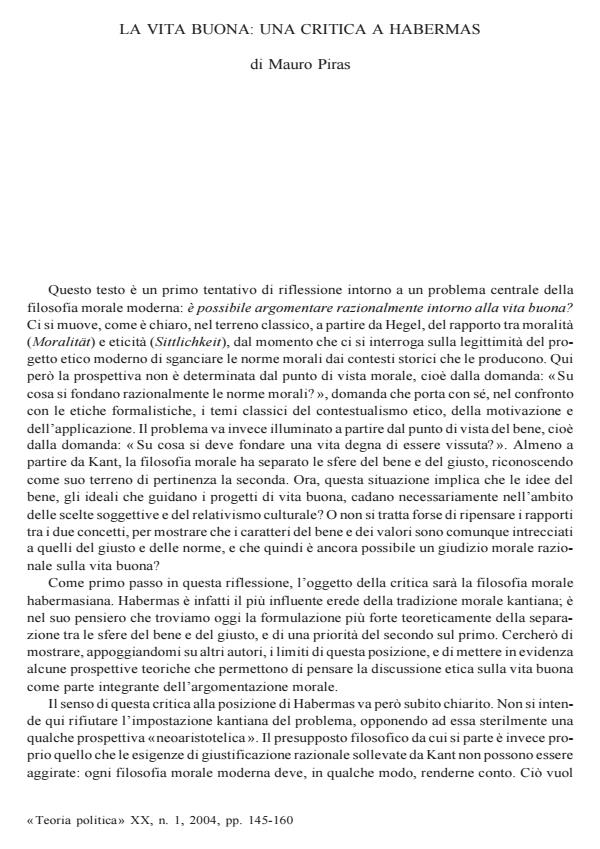La vita buona: una critica a Habermas
Titolo Rivista TEORIA POLITICA
Autori/Curatori Mauro Piras
Anno di pubblicazione 2004 Fascicolo 2004/1
Lingua Italiano Numero pagine 16 P. Dimensione file 53 KB
DOI
Il DOI è il codice a barre della proprietà intellettuale: per saperne di più
clicca qui
Qui sotto puoi vedere in anteprima la prima pagina di questo articolo.
Se questo articolo ti interessa, lo puoi acquistare (e scaricare in formato pdf) seguendo le facili indicazioni per acquistare il download credit. Acquista Download Credits per scaricare questo Articolo in formato PDF

FrancoAngeli è membro della Publishers International Linking Association, Inc (PILA), associazione indipendente e non profit per facilitare (attraverso i servizi tecnologici implementati da CrossRef.org) l’accesso degli studiosi ai contenuti digitali nelle pubblicazioni professionali e scientifiche.
The essay discusses a central problem of modern moral philosophy: «Is it possible to argue rationally about good life?». Kantian ethics, of which Habermas is the main exponent, gives a negative answer to this question, limiting the sphere of moral philosophy to that of «right». Habermas conceives «good» and «values» in a subjectivistic way, putting them beyond the reach of rational reasoning. Anyhow it is possible to argue instead that values are transcendent with respect to the subject (Ricoeur, Joas, Taylor), and that consequently it does exist a form of «practical reeasoning» which, while not linked to abstract universalism, it is a learning process internal to values themselves (Taylor). The general meaning of this critique to Habermas is not to reject deontological universalistic ethic, but to define the relationships between good and right without giving up the rationality this ethics purports.
Mauro Piras, La vita buona: una critica a Habermas in "TEORIA POLITICA" 1/2004, pp , DOI: